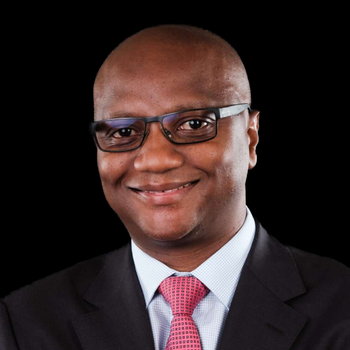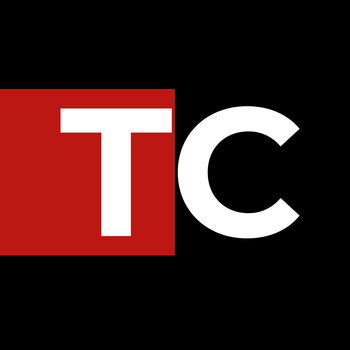
TCS+ | Fortinet, and the invisible tech that powers our lives
Loading player...
In this episode of TechCentral’s TCS+, Fortinet’s Matthew Taljaard, subject matter expert in operational technology (OT) for Africa at Fortinet, demystifies OT, explaining what it is, how it differs from IT, the industries it powers, and much more.
Watch or listen to the interview below.
The distinction between OT and IT is often blurry, leading to confusion. OT is the unsung hero of many industries and plays a crucial role in enhancing efficiency, safety and reliability. So, what is OT, and how does it differ from IT?
OT encompasses the hardware and software systems responsible for monitoring and controlling physical processes and industrial operations. In essence, OT manages the “things” in the internet of things (IoT). Conversely, IT focuses on processing, storing and transmitting data, predominantly utilising computers, networks and software for decision-making and business processes.
While both IT and OT share similarities such as network connectivity and data exchange, their objectives and priorities diverge. IT prioritises data integrity, confidentiality and availability, while OT emphasises reliability, availability and safety of industrial processes.
The primary goals of OT include:
• Improving operational efficiency through automation, real-time adjustments and equipment health monitoring.
• Enhancing safety by controlling processes to prevent accidents and respond to emergencies.
• Increasing reliability with systems designed for harsh industrial environments.
• Enabling predictive maintenance using sensors and data analytics to anticipate equipment failures.
• Ensuring product or service quality by controlling production parameters to meet predefined standards.
OT drives various industries, including manufacturing, energy, utilities, transportation and healthcare, ensuring efficient and safe operations. For instance, in manufacturing, OT automates production lines to optimise productivity and quality, while in healthcare, it oversees medical equipment and ensures the reliability of medical procedures.
The OT field offers diverse job roles, each requiring specialised skills. OT engineers design, implement and maintain control systems and automation solutions. OT technicians troubleshoot and maintain systems. Cybersecurity specialists protect critical infrastructure from cyber threats. Data analysts gather and analyse data for efficiency and predictive maintenance. Control systems architects design the overall architecture of OT systems to meet specific industrial requirements, offering exciting opportunities for those with the right skills and passion for innovation.
The convergence of IT and OT brings about numerous benefits but also introduces new challenges, particularly in cybersecurity. A report found that 75% of OT organisations experienced at least one intrusion in the last year. A successful cyberattack on OT can result in production disruptions, safety hazards, environmental damage and economic losses. Therefore, ensuring the security of OT systems is crucial not only for business operations but also for public safety and national interests.
Robust cybersecurity measures include network segmentation, regular updates, access controls, monitoring, employee training and incident response plans. Here are some practical tips for OT security:
• Implement asset inventory and segmentation and employ micro segmentation and virtual patching solutions.
• Collaborate across IT, OT and production teams to assess cyber and production risks and inform the chief information security officer.
• Develop a vendor and OT cybersecurity platform strategy, considering a wide portfolio of solutions.
• Incorporate cybersecurity awareness education and training for all computer and mobile device users.
For more, visit https://techcentral.co.za/.
Watch or listen to the interview below.
The distinction between OT and IT is often blurry, leading to confusion. OT is the unsung hero of many industries and plays a crucial role in enhancing efficiency, safety and reliability. So, what is OT, and how does it differ from IT?
OT encompasses the hardware and software systems responsible for monitoring and controlling physical processes and industrial operations. In essence, OT manages the “things” in the internet of things (IoT). Conversely, IT focuses on processing, storing and transmitting data, predominantly utilising computers, networks and software for decision-making and business processes.
While both IT and OT share similarities such as network connectivity and data exchange, their objectives and priorities diverge. IT prioritises data integrity, confidentiality and availability, while OT emphasises reliability, availability and safety of industrial processes.
The primary goals of OT include:
• Improving operational efficiency through automation, real-time adjustments and equipment health monitoring.
• Enhancing safety by controlling processes to prevent accidents and respond to emergencies.
• Increasing reliability with systems designed for harsh industrial environments.
• Enabling predictive maintenance using sensors and data analytics to anticipate equipment failures.
• Ensuring product or service quality by controlling production parameters to meet predefined standards.
OT drives various industries, including manufacturing, energy, utilities, transportation and healthcare, ensuring efficient and safe operations. For instance, in manufacturing, OT automates production lines to optimise productivity and quality, while in healthcare, it oversees medical equipment and ensures the reliability of medical procedures.
The OT field offers diverse job roles, each requiring specialised skills. OT engineers design, implement and maintain control systems and automation solutions. OT technicians troubleshoot and maintain systems. Cybersecurity specialists protect critical infrastructure from cyber threats. Data analysts gather and analyse data for efficiency and predictive maintenance. Control systems architects design the overall architecture of OT systems to meet specific industrial requirements, offering exciting opportunities for those with the right skills and passion for innovation.
The convergence of IT and OT brings about numerous benefits but also introduces new challenges, particularly in cybersecurity. A report found that 75% of OT organisations experienced at least one intrusion in the last year. A successful cyberattack on OT can result in production disruptions, safety hazards, environmental damage and economic losses. Therefore, ensuring the security of OT systems is crucial not only for business operations but also for public safety and national interests.
Robust cybersecurity measures include network segmentation, regular updates, access controls, monitoring, employee training and incident response plans. Here are some practical tips for OT security:
• Implement asset inventory and segmentation and employ micro segmentation and virtual patching solutions.
• Collaborate across IT, OT and production teams to assess cyber and production risks and inform the chief information security officer.
• Develop a vendor and OT cybersecurity platform strategy, considering a wide portfolio of solutions.
• Incorporate cybersecurity awareness education and training for all computer and mobile device users.
For more, visit https://techcentral.co.za/.





